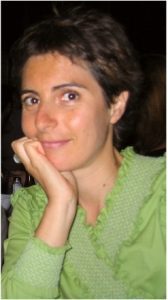The Wadja Aboriginal Family Place offers a culturally safe space for Aboriginal and Torres Strait Islander patients and their families to have a break from wards and clinical areas.
Not only is it a place where families can come for a yarn and a cuppa, the Wadja team work tirelessly to ensure there is equitable access to healthcare services and increased cultural sensitivity of healthcare providers to the needs of Aboriginal and Torres Strait Islander patients and families across the hospital. This essential service, and others like it around the RCH including in research and ethics, are supported in memory of an incredible young doctor, Debbie Stach.
“The Wadja Health Clinic is a weekly general medical outpatient clinic for Aboriginal patients presenting with complex medical and social issues delivered by a multi-disciplinary team consisting of Aboriginal Case Managers, Paediatricians, Mental Health Clinicians and Allied Health professionals,” said Selena White, Manager of The Wadja Aboriginal Family Place.
“Our Wadja Case managers work across all clinical departments at the RCH to provide a culturally sensitive service in order to provide the best quality care to create awareness and inclusivity of our Aboriginal patients, young people and their families.”
“Without the generosity of philanthropy, we would not be able to deliver the most comprehensive model of care to our Aboriginal patients, their families and the Koori community,” Selena added.
The Debbie Stach Memorial Fund, created by Sylvia and Peter Stach in memory of their daughter, Debbie, is one of the many generous philanthropic supporters of Wadja.

Debbie Stach.
Image: supplied
“Debbie was a very independent woman. She was a doctor and was particularly interested in supporting indigenous health and improving the quality of care in these areas,” said Peter and Sylvia.
“We decided to establish a fund in her name so we could further honour her and support organisations, initiatives, and projects in areas she was personally committed to or interested in. Such areas include indigenous health, the arts and the environment,” they added.
Paediatrician Dr Renata Kukuruzovic, who is one of the clinicians involved in the initial Community Consultation process said the funds provided by philanthropy groups, including the Debbie Stach Memorial Fund, has allowed Wadja to develop into what it is today.
“These conversations were the seed that allowed The Wadja Aboriginal Family Place to blossom. The service we’ve created is unique, and The Debbie Stach Memorial Fund has had a significant impact on setting priorities for the delivery of healthcare to Aboriginal children at RCH,” said Dr Kukuruzovic.
The Stach’s impact on the hospital has not stopped there. Through the fund, the Stach’s have been able to support other departments and initiatives, like the RCH Psychology Unit, a book titled ‘This Is My Mob’, bioethics conferences and the recent RCH150 Aboriginal Art Project.
The Stach’s hope that the impact of the Debbie Stach Memorial Fund within the RCH will continue into the future, and that they can keep offering their support to projects and initiatives that Debbie was passionate about.
“Knowing that we have been able to make a small impact in Debbie’s name means a lot to us, and we would encourage anyone who can to give to the hospital.”